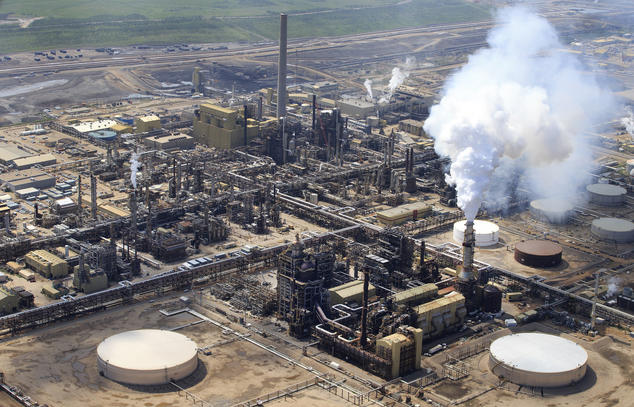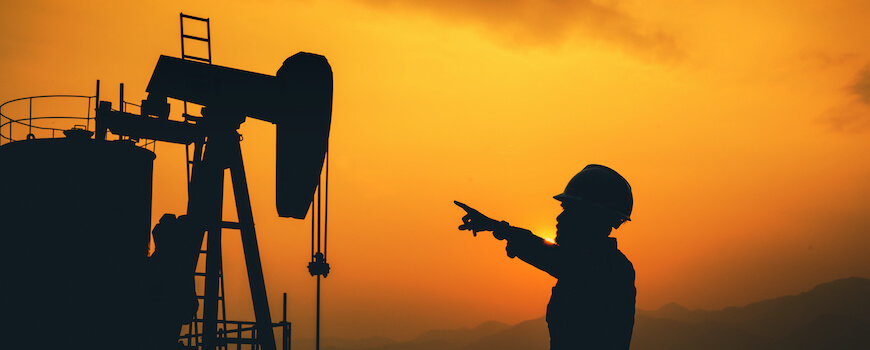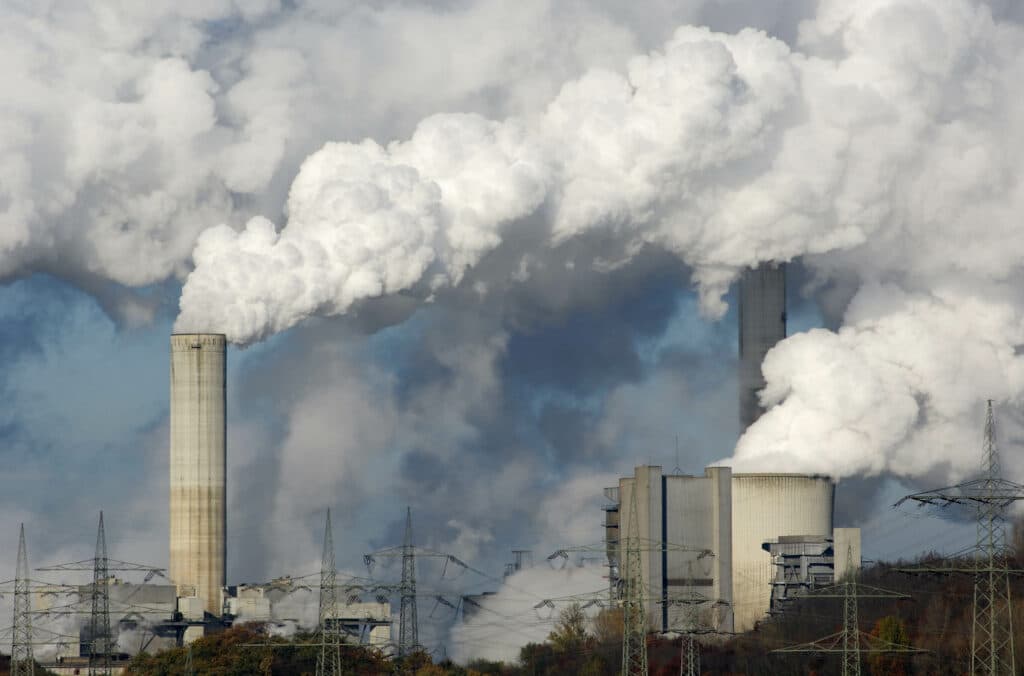Disadvantages of Fossil Fuels– Natural gas, petroleum, and coal are the most broadly employed energy sources globally. They account for 80% of the whole power consumption. There are several well-known disadvantages of fossil fuels, for instance, their considerable role in the greenhouse effect. We do not always hear about the positive aspects of fossil fuels. That is why it is worth considering replacing fossil fuels with other energy sources. However, we still utilize them because they are effective, cheap, and reliable. Like everything, all energy sources have their advantages and disadvantages. It is our task to discover what is the best, both for humanity and for the environment.
Fossil fuels remain the primary source of energy generation for the great majority of the world’s population. Renewable technologies such as solar energy, on the other hand, are increasingly rivaling the promise of traditional fossil fuels. In this post, we’ll look at some of the drawbacks of fossil fuels and why they’re unlikely to be the energy source of the future. Different Types of fossil fuels are provided by several suppliers and companies, different manufacturers, and a lot of Distributers and there are a lot of Fossil Fuels for Sale on Linquip.
There is a complete list of Types of fossil fuel services on the Linquip website that covers all OEM fleets. Linquip vendors can assist you with this. Please contact Linquip’s Fossil Fuels Experts to discover more about how to connect with a diverse group of service providers who consistently deliver high-quality items.
What are the Disadvantages of Fossil Fuels?
Drilling, mining, or burning dirty energy are harming the earth and our health. Here’s everything you need to know about the disadvantages of fossil fuels and why we must embrace a clean energy future. So now we understand why they’re still in use, why are we so willing to replace them?

Fossil Fuels are Nonrenewable
Non-renewable energy resources are estimated to deplete in the near future. Fossil fuels are not introduced as renewable energy sources since their supply is limited. In fact, they are estimated to run out in the next 50 years. Also, the creation of fossil fuels takes millions of years, which means when they finish, we can alternate them immediately.
While you burn a huge amount of oil, it’s gone for good – and fossil fuels will run out. It’s estimated we have just 100 years of coal generation left, 50 years of natural gas, and 50 years of crude oil. That means this is a basic problem for us, our children, and our grandchildren. That’s why we help you switch to the advantages of clean energy.
Dangerous to Produce
Mining is a practically dangerous industry where catastrophic disasters can happen. Despite improvements in machinery, there’s still a human role that can come at a huge cost.

Mining disasters aren’t a matter of the past, a mining disaster in West Virginia killed 29 men in 2010, the Sago Mine tragedy in the same region just five years before cost 12 lives, and the Kohistan mine falling in Afghanistan cost at least 30 lives in 2019. Miners won’t cease being buried in mine explosions or worse in mine collapses until we make the switch to clean sources.
Refinery and Oil Rig Explosions
Both gas and oil are flammable and volatile, and the examples of refineries and oil rigs exploding or locations where fire breaks out are several. It is not only the risk to the lives of employees and firefighters, or the damage caused but also the danger of the toxic gases that are possible to be released.
It is estimated that the fire in June 2019 at the Philadelphia Energy Solutions refinery caused over 6000 pounds of the toxic gas hydrofluoric acid to be released into the atmosphere. There are no odds of this when we switch to clean sources.
Water Pollution and Oil Spills

We always hear only about massive oil spill disasters, like the Exxon Valdez tragedy in Alaska back in 1989, but small oil spills usually happen. Crude oil kills almost everything it contacts and can be catastrophic to local wildlife. The International Tankers Owners Pollution Federation (ITOPF) evaluates that between 1970 and 2016, oil spillages added up to 5.73 million tons.
Water Table Poisoning from Fracking
Fracking is an extraction method that is extremely harmful to the earth, but one serious worry is the contamination of the water table. It shouldn’t occur but it may if appropriate precautions are not taken or if errors are made and can pollute our water supply.
Air Pollution and Smog
Smog is produced when sunlight reacts with volatile organic components like nitrogen oxide in the air. Nitrogen oxide is a considerable emission from factories, vehicles, and coal power plants. Volatile organic compounds are released from gasoline, paints, and solvents.
The resulting photochemical smog is a health matter all over the world but especially so in newly industrialized regions, believed to cause respiratory troubles like lung cancer and asthma. Choosing clean sources even in a personal state will help give our countries cleaner air.
Acid Rain
Acid rain is created by a chemical process between nitrogen oxides and sulfur dioxide mixing with water, oxygen, and other chemicals great in the air. The pollutants are highly generated by fossil-fuel-burning in the power plants. Acid rain is a complex problem and damages lakes, trees, architecture, rivers, crops, statues, and wildlife.
Mercury Emission
One of the most serious disadvantages of fossil fuels is mercury emission. Mercury is extremely toxic and significantly damaging to the environment. A basic contributor to mercury emission is the combustion of coal. It has been evaluated that coal-burning results in roughly 475,000kg of mercury being emitted into the atmosphere.
Global Warming
Global warming, or climate change, is still rejected by some, but science almost unambiguously supports it. The main cause is the release of greenhouse gasses into the air. The burning of fossil fuels generates huge quantities of carbon dioxide and is a major contributor to the growing problem that the earth faces.

Using of coal is thought to contribute 40% of the earth’s carbon dioxide emissions. Around the earth, petrol (gasoline) alone is assumed to be responsible for a third of the carbon emissions. At the same time, cleaner than both crude oil and coal, natural gas is approximately responsible for 20% of the carbon emissions. Choosing clean energy resources will help you do a great part in halting and reversing the effects of climate changes.
Key Disadvantages of Fossil Fuels
Land Use and The Impact on Wildlife
The procedure of discovering, extracting, generating, and moving fossil fuels has no thought for the local wildlife. In many regions of the earth, if there are fossil products, everything else should move out of the way so it can be extracted. Habitats are continuously destroyed, and massive scars are left upon the landscape generated by surface mines and other extraction ways.
Renewable energy resources don’t bore down into the earth’s crust or annihilate habitats. The effect of clean energy farms is no different from that of farming, and many types can be operated out at sea. Plus, while a renewable energy farm has been installed, it can continue to be kept in that location forever.
Price Fluctuations
Fossil fuels are greatly susceptible to market manipulation and price fluctuations. This aspect is highly felt by developing cities that heavily rely on the utilization of fossil fuels. Massive market manipulations and price fluctuations by oil-generating countries in the middle east cost the economy about 2 trillion between 2005 and 2008 alone, according to the U.S. Department of Energy. Developments in clean energy technologies have reduced these price fluctuations and manipulations to a higher degree.
Effect on Human Health
Emissions of greenhouse gasses and other toxic components resulting from fossil fuel burning can cause important health complications, including chronic asthma, low lung performance, chronic bronchitis, and cardiovascular matters.
Accidents Can Be Disastrous
Unlike clean energy sources like wind and solar, accidents involving fossil fuels are greatly dangerous and can cause huge damage. Oil spills happened in the past, particularly in the United States. Oil spills lead to contamination of water bodies and death of sea animals containing those living offshore. Also, the environment around the sea is extremely devastated.
Environmental Hazards
Environmental contamination is one of the basic disadvantages of fossil fuels. It is a considerable fact that carbon dioxide, the gas emitted when fossil fuels are used, is one of the basic gas responsible for climate change. The rise in temperature of the world has resulted in polar ice caps melting, flooding of low-lying regions, and a rise in ocean levels. If such situations continue, our planet might face some important consequences in the near future.
Need Huge Amount of Reserves
The coal power plants require a regular and huge supply of coal to generate a great amount of energy on a fixed basis. This means that these power plants require train-loads of fuel near the main stations to carry out the procedure of creating power. This is required as many countries are still dependent on coal as the main resource for generating power.
Overdependence
More than half of the oil used in the United States is imported, according to the U.S. Department of Energy. This overdependence on external oil is a security threat to the countries. Other countries can utilize this overreliance as political leverage, setting a country’s interests in grave danger.
Impact on Aquatic Life by Oil Spill
Fossil fuels are required in huge reserves wherever their plants are installed. This needs them to be moved to a suitable location via train, truck, ship, or airplane. We always hear of some leaks in the fuel tankers or ship getting drowned deep under the water that was carrying the fuel to get refined. The effect of this is that particular fossil fuel includes some toxic materials which when mixed up with water poses a drastic impact on aquatic life. Moving crude oil via sea can cause oil spills, which can affect aquatic life by removing the oxygen content of the water.
Do the Advantages of Fossil Fuels Outweigh the Disadvantages?
Surely No.
Non-renewable energy resources are unsustainable in our modern world with power requirements. They destroy the earth, both we can see and we can’t – imagine the earth in which people who live in countries don’t have to worry about the state of pollution when they walk outside. One where our power does not come at a cost.
That’s the earth our children and we are committed to living in. We aren’t eager to compromise on our health or the health of the earth easily since it’s simpler not to think about it.
What are the Disadvantages of Fossil Fuels as an Energy Source?
Fossil fuels need the earth to be disfigured to be sourced and then cause global warming with the toxic gases that are released when they are employed. As if that’s not bad enough, they will run out within the near future or so.
Where Does Carbon Dioxide Come From?
Carbon dioxide is a by-product of several procedures, from fossil fuels burning to the atmosphere we breathe out.
Why Are Fossil Fuels Bad?
Fossil fuels need to disrupt the world to source and generate dangerous by-products.
What is the Alternative to Fossil Fuels?
Renewable, clean energy. Forms of alternative energy resources like solar and wind aren’t any more disruptive than building or farming and don’t generate harmful by-products.
Is Renewable Energy Better than Fossil Fuels?
Yes! It doesn’t harm the earth, and we can continue generating it forever.
Why Can’t We Stop Using Fossil Fuels?
We can, and it’s only going to take a long time. There’s a lot of money in producing fossil fuels, and so people have to show energy companies they tend to use clean energy. As renewable energy infrastructure develops, it will begin to take over the power demand from fossil fuels, so we can phase it out of utilization. Visit here to explore more about the disadvantages of fossil fuels.
Give Up Fossil Fuels for Good
Fossil fuels are a finite source and require to be replaced as soon as possible to avoid further harm to the atmosphere. Renewable energy is the only method forward. Oil, Coal, and gas disfigure and pollute the planet. If we want our children and their children to have a healthy environment to live in, we should invest in new methods that are safe, clean, and renewable. It’s also never been simpler to take control of your power sources, and unlike investing in an electric device, switching your energy source to clean types doesn’t need thousands of dollars or the space to keep one.
FAQs about Disadvantages of Fossil Fuels
Which are the biggest disadvantages of using fossil fuels?
One significant drawback of fossil fuels is pollution. This is due to the greenhouse effect they produce when burned, which releases carbon dioxide. Moreover, this is the primary cause of the current earth’s global warming.
What are 3 big problems with fossil fuel use?
But burning them changes the climate and makes pollution that makes people more likely to die young, have heart attacks, strokes, breathing problems, asthma, and miss work or school. It has also been connected to Alzheimer’s disease and autism spectrum disorder.
Why should we not use fossil fuels to quickly?
Nowadays, we recognize that using fossil fuels has a negative impact on the environment. Fossil fuels generate and utilize local pollutants, and their continued use permanently alters the temperature of our whole world.
Are there negative consequences to using fossil fuels?
Burning fossil fuels causes three negative effects: air pollution, water pollution, and climate change. The substances generated during the burning of fossil fuels are to blame for these impacts.
What is safer than fossil fuels?
For instance, compared to brown coal, coal, oil, and gas, nuclear energy causes 99.9%, 99.8%, 99.7%, and 97.6% fewer deaths. Both wind and solar power are secure.
Are fossil fuels the worst energy source?
Less than coal and oil, but still far more than any other kind of sustainable energy, fossil gas kills over three people for every unit of electricity produced.
Download Disadvantages of Fossil Fuels PDF
You can download this article as a PDF so that you can access it whenever you like.
linquip.com-What are the Disadvantages of Fossil Fuels
Watch Videos about Disadvantages of Fossil Fuels
For more information about Disadvantages of Fossil Fuels, watch this video about Disadvantages of Fossil Fuels.
Buy Equipment or Ask for a Service
By using Linquip RFQ Service, you can expect to receive quotations from various suppliers across multiple industries and regions.
Click Here to Request a Quotation From Suppliers and Service Providers
Read More on Linquip
- Fuel Cells Advantages and Disadvantages: All You Should Know About
- 10 Main Types of Energy Storage Methods in 2021
- Types of Solar Panels: A Simple Guide Assisting You to Have Better Choice
- Different Types of Renewable Energy: An Easy-to-Understand Guide
- Types of Solar Energy: Learn the Basics, Get the Most Out of It!
- Advantages of Fossil Fuels
- Difference Between Solar Energy and Wind Energy
- What is the Difference Between Solar Cell and Solar Panel?
- Can Renewable Energy be Stored? A Bright Future Awaits
- The 10 Best Solar Generator
- The 8 Best Home Wind Turbines
- Is Wind Energy Renewable or Nonrenewable?
- What is Wind Turbine? The Short and Essential Answer
- Wind Energy Advantages and Disadvantages Fully Explained
- Different Types of Renewable Energy: An Easy-to-Understand Guide




I am trying to find some thing different
You can visit Linquip.com to find the bests for your application.
Thanks for visiting our website and leaving your comment, Chris! We hope to hear from you again in our other posts.